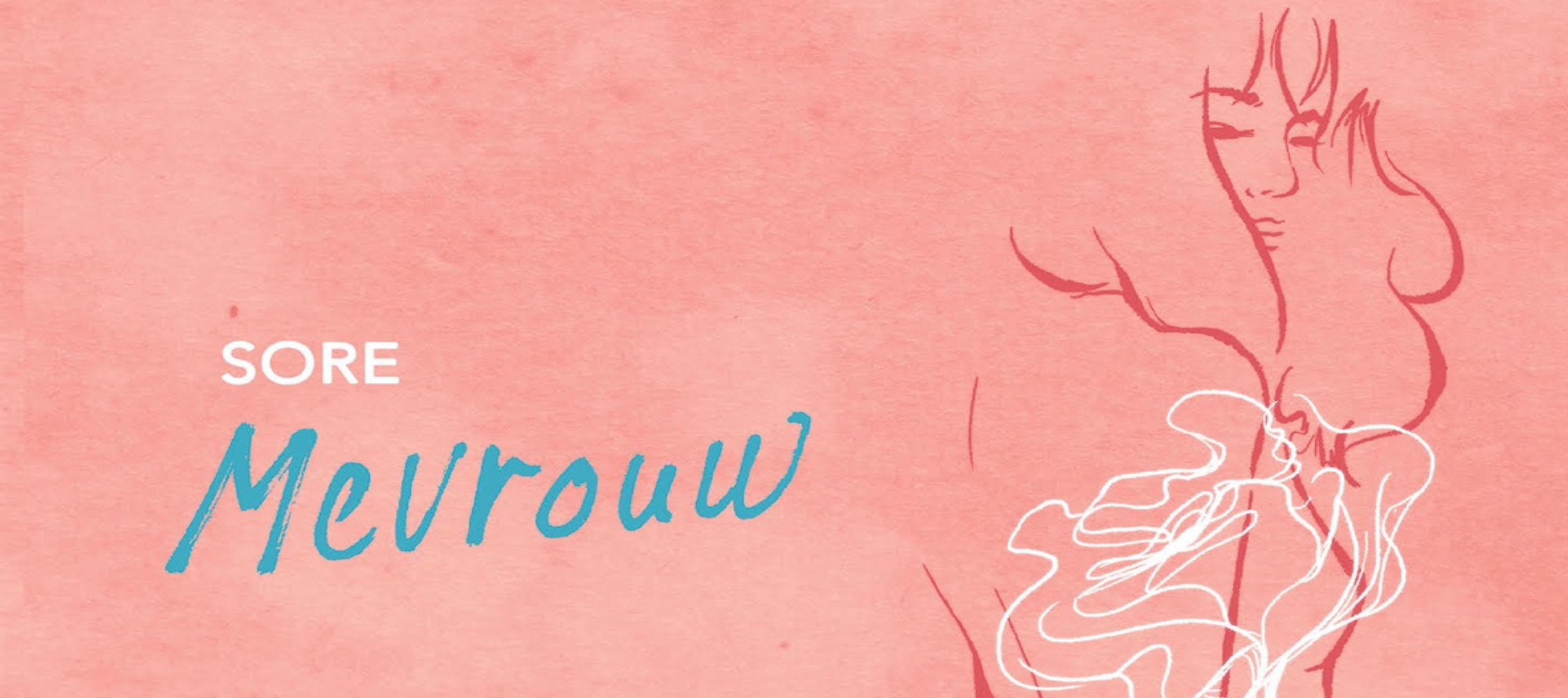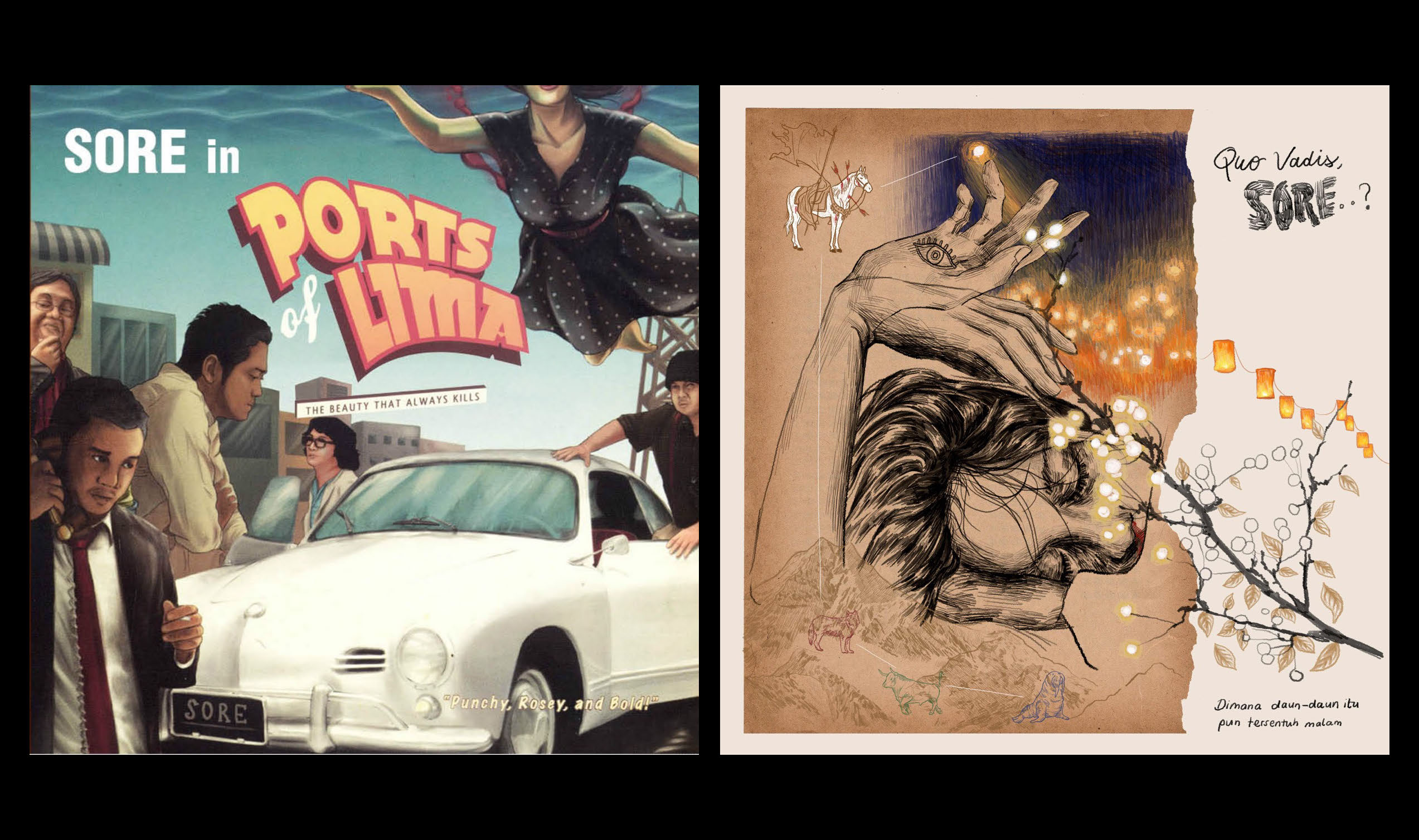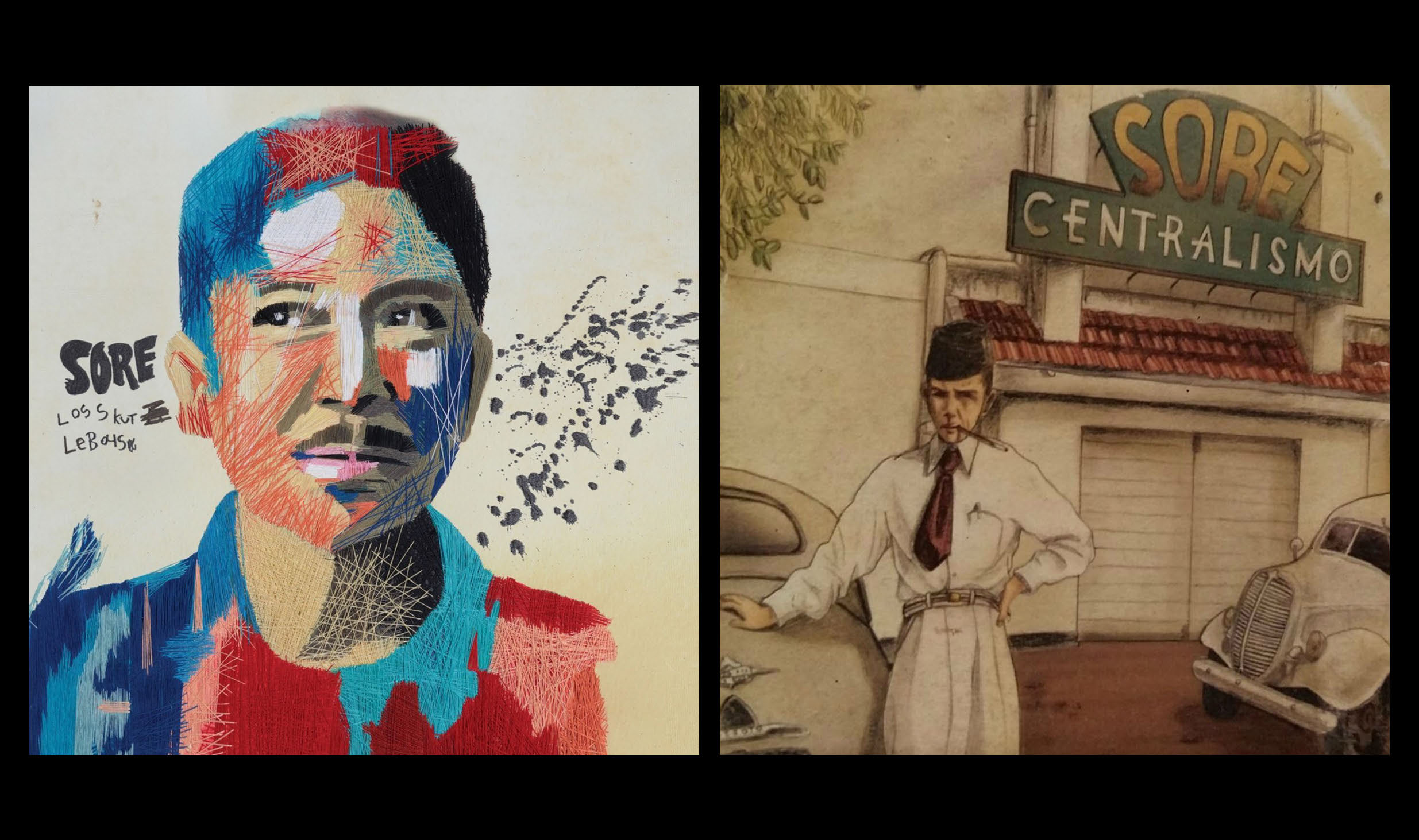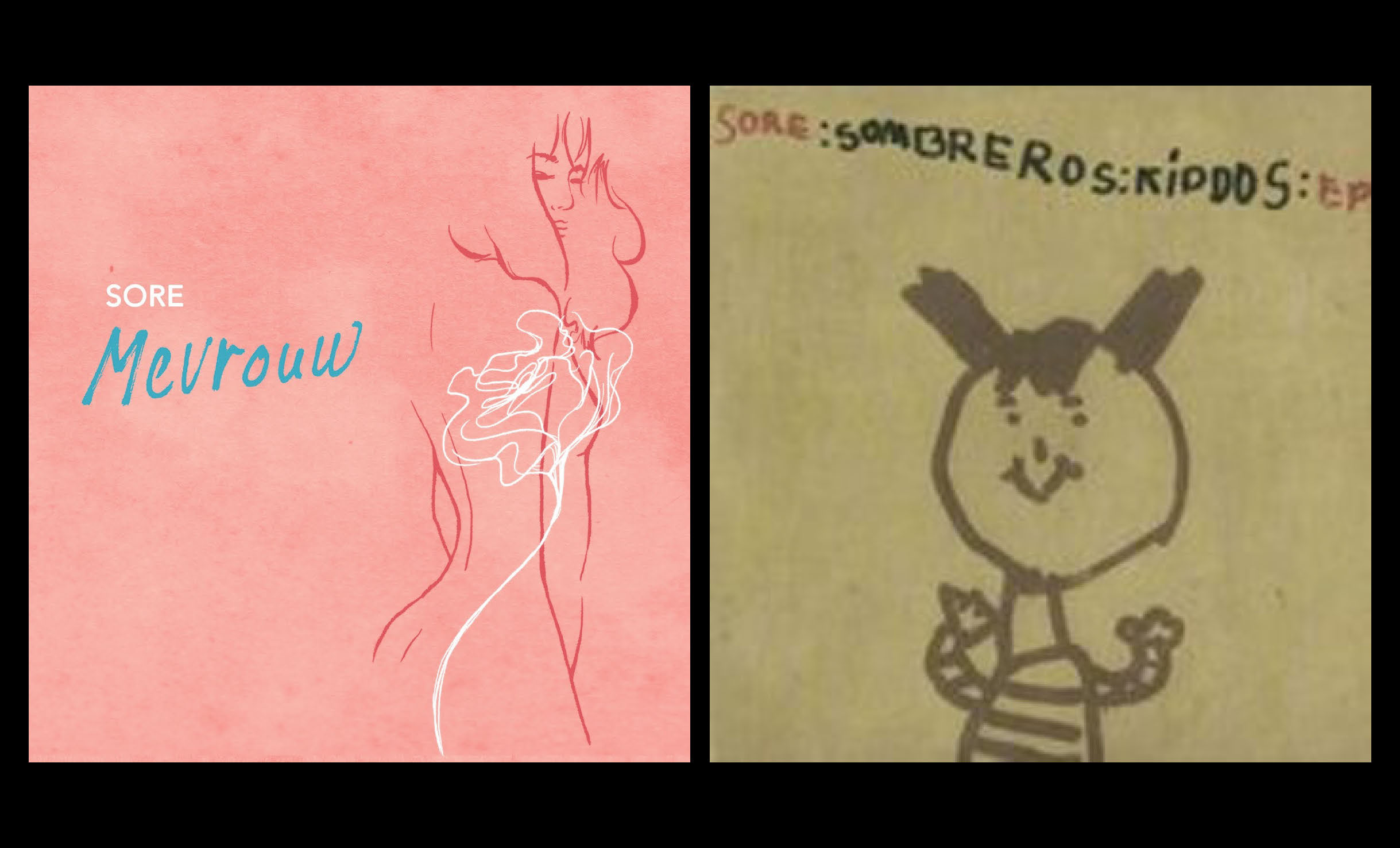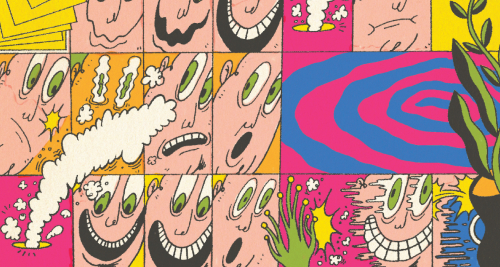Following the Journey of SORE's Album Covers and the Stories Behind Them
The music of the band SORE has grown over time as a cross-medium inspiration: literature, cinema, and of course, graphic design. SORE’s music not only soothes the ears but also presents visual narratives with deep meanings about life, our roots as humans, and spirituality. Grounded ideas become stories that breathe life into SORE's album covers from the inception of the band in the early 2000s to the present day. The visuals on SORE's album covers are also a significant legacy of the late Ade Paloh, vocalist and guitarist of SORE, who sadly passed on March 19th. Ade Paloh's departure left deep sorrow in the hearts of SORE listeners and fellow creatives who saw him as an inspiration. However, we are invited to remember Ade Paloh's footsteps through the creative work of the SORE band, including the designs of their album covers. Speaking to Grafis Masa Kini, Awan Garnida, bass player and vocalist of SORE, shares his memories of the process of designing SORE's album covers, from Centralismo to Quo Vadis, SORE?
Amidst the rumble of rain nearing dusk, Awan opens the conversation with the story of SORE's formation—Ade Paloh, Mondo Gascaro, and Awan Garnida; three childhood friends who shared a love for music. "The beginning of the band was initiated when I saw my friends (Ade and Mondo) had a special interest in music, but not all of us had a musical background, had a band, and had ever written any songs. So, I encouraged us to create together," Awan recounts. Then, in 2001, Awan brought in two other friends, Bemby Gusti and Reza Dwiputranto, who already had experience as band members. With a complete lineup, they formed a group called SORE. As time passed, SORE felt that creating songs alone was not enough. "We tried to package all of this as a community that could be enjoyed by a wide audience. In that regard, of course, we also had to think about the 'packaging'," Awan says. According to Awan, the late Ade Paloh contributed many ideas to the "packaging" of SORE's releases. His broad references enriched the artistic direction of the band's album covers, leaving listeners curious for more. "Ade indeed had many references, from books he read to films he watched. His environment also had many young people who often shared ideas. Usually, in visual matters, Ade mostly gave directions, and others added," says Awan.
Four years after their formation, SORE released their debut album, Centralismo, under the Aksara Records label. According to Awan, Centralismo was the band's tribute to Central Jakarta, where most of them were raised. "We wanted artwork that could depict the idea behind the album. Initially, we didn't know who could create (the album cover). Eventually, we found (someone) from around us, which was Mondo Gascaro's brother, Mayumi Haryoto," Awan explains. With finesse, Mayumi depicted the nostalgic atmosphere of central Jakarta with a character dressed formally in a black fez on his head and a cigarette between his lips. In the background, there are two old cars parked. Furthermore, Awan explains, "She (Mayumi Haryoto) was able to capture what was in our minds about central Jakarta. We hung out in the Central area and grew up around Cikini. As an artist, he was able to depict the vintage feel of the early 1950s. We wanted to pay tribute to the Soekarno era and an area that resisted colonialism." This cover with its worn-out illustration translates SORE's music in the Centralismo album, which uses antique instruments as a memory of the golden age of pop music in the 1950s, 60s, and 70s. Centralismo became a successful debut for SORE with positive reviews from various media outlets. In 2017, Centralismo ranked 40th in the list of "150 Best Indonesian Albums of All Time" by Rolling Stone Indonesia magazine.

SORE's musicality, according to Awan, grew naturally, without any pressure or excessive ambition—everything was fueled solely by their love for music. After working on material for more than a year, SORE released their second album titled Ports of Lima in 2008, still under Aksara Records. "Accidentally, without any effort, our work this time had a strong connection to cinema," says Awan. The illustrations on the Ports of Lima album cover resemble a scene from a film. "The artwork formed as if from a film script. There are many symbols; each song is like a snippet of a script that forms a narrative. In the album cover, we (SORE members) each have our characters. Our names are disguised like actors. During that time, our creativity was at its peak, both in terms of sound and visual ideas," Awan explains with a chuckle. The songs on the Ports of Lima album are not only inspired by the personal experiences of the writers but also by a series of works by cinema maestros, such as the song "Come By Sanjurou," inspired by the film Sanjuro by the legendary Japanese director Akira Kurosawa. Interestingly, some of the songs on the album were also involved as soundtracks for local films such as "Ernestito" in the film Quickie Express (by Dimas Djayadiningrat), "Bogor Biru" in the film Modus Anomali (by Joko Anwar), and "Merintih Perih" in the film 13 Bom di Jakarta (by Angga Dwimas Sasongko).
Awan states that as they aged, SORE's artistic journey, both musically and visually, was naturally simplified. In 2013, SORE released a compilation album titled Sorealist containing old material from the Centralismo and Ports of Lima albums, as well as songs involved as film soundtracks. Different from previous releases, visually, this album features simple illustrations, as does Los Skut Leboys, SORE's third album released in 2015 under Rooftopsound Records. "The album cover of Los Skut Leboys features a famous figure in Indonesia, Kusni Kasdut. Behind his story, there are many moral messages for all of us. Finally, we poured them out through the artwork," explains Awan. Kusni Kasdut himself was a former freedom fighter of the Republic of Indonesia who eventually turned into a criminal. His name became known to the Indonesian public after robbing eleven gems from Museum Gajah in 1961. Furthermore, the single "R14" on this album is dedicated to the legendary Indonesian actress Ria Irawan.
The fourth album titled Quo Vadis, SORE? was released in 2023 and became the last album involving the late Ade Paloh. Unintentionally, the cover of Quo Vadis, SORE? shows SORE's spiritual side with poetic illustrations, giving a sense of tranquillity to anyone who sees it. The presence of a sleeping female character, with light from lanterns, and a background resembling burnt paper, immerses listeners in poetic verses and visual metaphors. "I don't know why in the last album cover our spiritual side seems more prominent. The way we interpret every event in life, the language expressed in conversations, and our thoughts and works, are more spiritual. Ade also stated that it was his last involvement with SORE, 'Wan, after this album, I think I'll stop contributing to songwriting, and everything else,'" recalls the bass player. The last song on this album is "Curtains," which Awan describes as the curtains closing on a stage after a performance. "Show is over," says Awan. For Awan himself, this album feels like the universe's destiny speaking, being Ade Paloh's profound and transcendent final legacy. "If the spiritual area cannot be discussed, but only felt, and that area determines our attitude and steps forward, including facing this grief," says Awan.
Until now, Awan personally still feels grief in every step. "Until now, the grief is not over. That's why there is a term called samsara. I have wisdom in my head that everything is gonna be alright. But the grief is there, and this feeling is entrusted by God, then, if given the chance, we can manifest it in other forms," says Awan. The feeling of grief walks hand in hand with love. Certainly, the grief felt by SORE listeners is evidence of their love for the late Ade Paloh. Now, his legacy lives on eternally and continues to influence, both in the local music scene and across media. His ideas in the visual realm can always be "visited" as traces of inspiring works.
